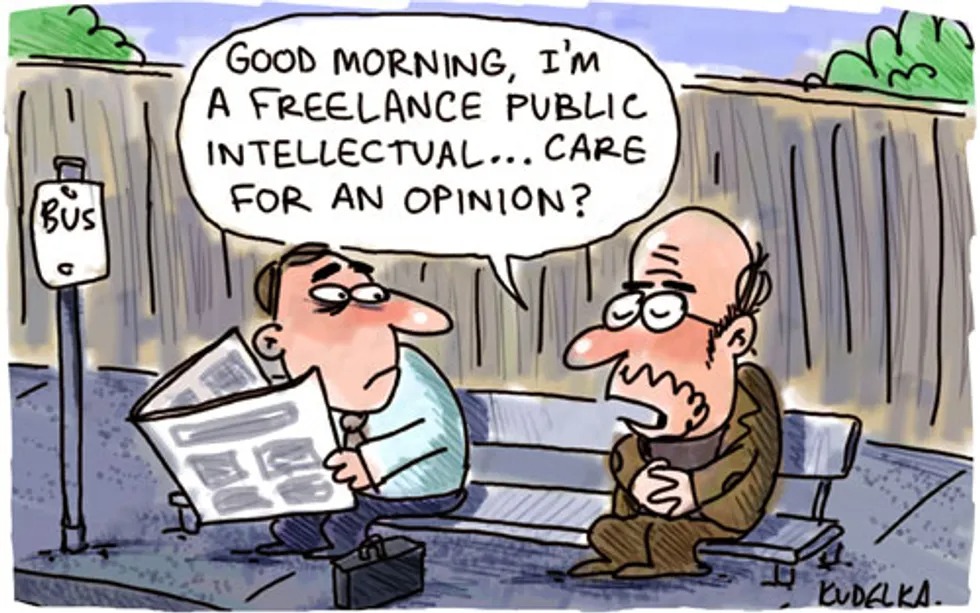What is the role of the intellectual in society? This question has been debated from several perspectives over the centuries, mostly by intellectuals themselves. While Ayn Rand saw the intellectual class as the fountainhead of the dominant philosophy of the age, Lenin saw them as the backbone of the vanguard party, which would bring about the revolution.
However, intellectuals like Thomas Sowell criticized them as contributing little to the society’s progress, and Nassim Nicholas Taleb calls most of them IYIs (Intellectual yet Idiots)
Views of Mr. Eric Hotter, given in this piece published in the January 1958 edition of the Indian Libertarian magazine fall in the critical category. According to him, most intellectuals over time develop a scorn for the common folk and get indulged in their vanity. They disregard the knowledge of the masses and seek to impose their opinion on society as ‘wisdom’.
The intellectual goes to the masses in search of weightiness and a role of leadership. Unlike the man of action, the man of words needs the sanction of ideals and the incantation of words in order to act forcefully. He wants to lead, command, and conquer. But he must feel that in satisfying these hungers he does not cater to a petty self. He needs justification, and he seeks it in the realization of grandiose design and in the solemn ritual of making the word become flesh. Thus he does battle for the downtrodden and disinherited and for liberty, equality, justice, and truth, though as Thoreau pointed out, the grievance which animates him is not mainly “his sympathy with his fellows in distress, but, though he be the holiest son of God. Once his “private ail” has been righted, the intellectual’s ardour for the under-privileged cools considerably.
His cast of mind is essentially aristocratic. Like Heraclitus he is convinced that “ten thousand (of the masses) do not turn the scale against a single man of worth” and that “the many are mean and only the few are noble.” He sees himself as a leader and master. Not only does he doubt that the masses could do anything worthwhile on their own but he would resent it if they made the attempt. The masses must obey. They need the shaping force of discipline in both war and peace. It is indeed doubtful that the typical intellectual would feel wholly at home in a society where the masses get their share of the fleshpots. Not only would there be little chance for leadership where people are almost without a grievance but we might suspect that the cockiness and the airs of a prosperous populace would offend his aristocratic sensibilities.
For full article, visit page 15 on this link.
IndianLiberals.in is an online library of all Indian liberal writings, lectures and other materials in English and other Indian regional languages. The material that has been collected so far contains liberal commentary dating from the early 19th century till the present. The portal helps preserve an often unknown but very rich Indian liberal tradition and explain the relevance of the writings in today’s context.
Read more: SO Musings: Full Employment and Monetary Policy
Post Disclaimer
The opinions expressed in this essay are those of the authors. They do not purport to reflect the opinions or views of CCS.






